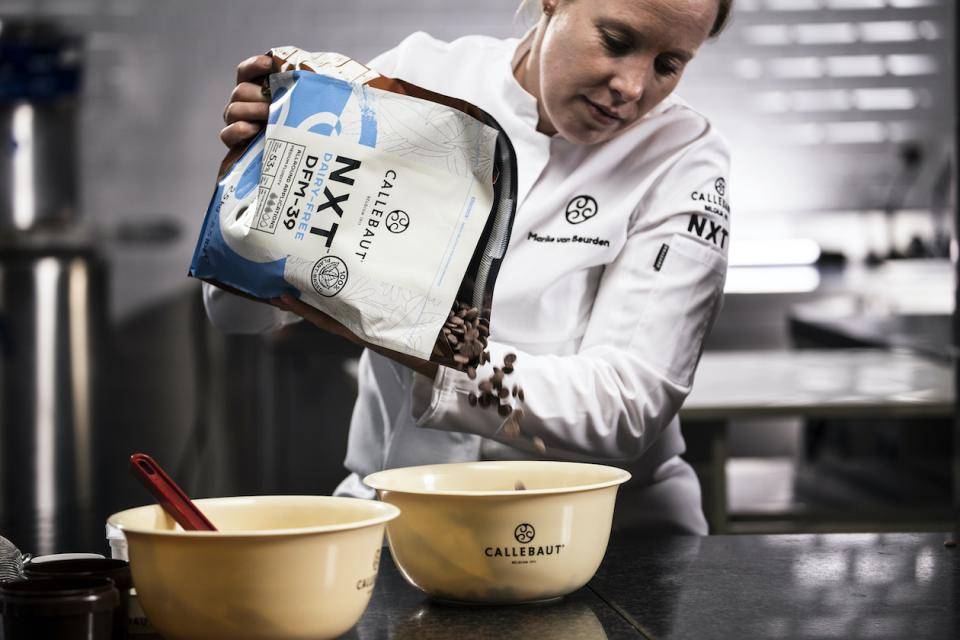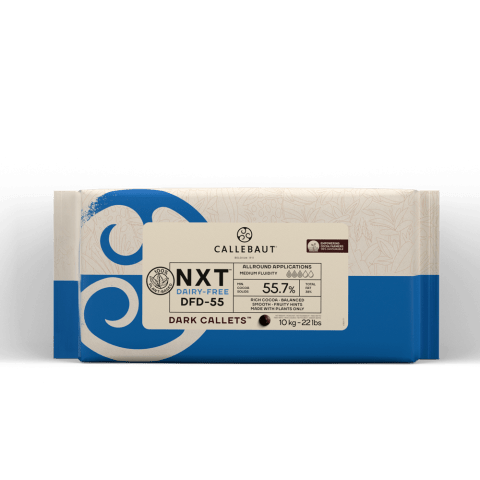Why Your Customers are Choosing Plant-Based
Why Your Customers are Choosing Plant-Based
Plant-based treats that are good for you and good for the planet are hitting the sweet spot for those seeking balanced indulgences that allow them to treat themselves while acting in a way that is in line with their values. To better help you satisfy your customers' plant-based cravings, let's explore why this option is becoming a "must-have" for so many people and discover ingredients and tools to help you adapt your menu and delight your customers.

Why Choose a Plant-Based Diet?
There are many reasons people choose to reduce or eliminate animal-based ingredients from their diets, and nearly as many ways to focus on plant-based foods. Eating habits under the plant-based umbrella include vegan, vegetarian, dairy-free, and flexitarian diets. All are seen as healthier and as having a lighter environmental impact than conventional diets. The three reasons most consumers list for choosing plant-based diets are:
- Weight loss
- Health Benefits
- Environmental Impact
Dietary restriction/weight loss:
Many plant-based swaps offer a reduction in calories or an increase in health benefits. Ingredients from vegetables, whole grains, and legumes can provide greater nutritional value than conventional, animal-sourced ingredients.
Health Benefits:
Recent research from ADM shows that 77% of consumers intend to increase their efforts to stay healthy in the future. According to the American Heart Association, eating fewer animal products can decrease a person’s chance of heart disease, stroke, type II diabetes, high cholesterol, high blood pressure, and some cancers.

Environmental Benefits:
Your customers are choosing plant-based options because they are in line with their personal and social values. By switching to vegan and vegetarian foods and ingredients, they can still enjoy the foods they love and help the planet thrive. Replacing some animal products in their diet with plant-based alternatives helps consumers feel that they’re doing their part to reduce animal agriculture’s impact on the environment.

Focus on Natural and Sustainable Plant-Based Ingredients
The benefits seem clear, and the plant-based trend is no longer a fringe movement, so why might someone be reluctant to try plant-based products?
The number one reason is taste. Consumers are concerned that vegan or vegetarian versions of their favorite foods won't taste as good or offer the same indulgence. Part of a snack or treat's allure is its pure pleasure; for a very long time, it's been thought that foods that are good for you don't taste good, and foods that taste good aren't healthy or environmentally responsible. Recent product innovations mean this is no longer the case; a chef can confidently produce high-quality plant-based confections that their customers will love as much as (or even more than!) conventional treats.

Plant-Based Ingredient Solutions
Restructuring your recipes to reflect your customers' desire for plant-based options can present challenges, especially when considering ingredients. Research into what ingredients are acceptable for different plant-based diets can quickly leave a chef or chocolatier feeling overwhelmed.
Callebaut's NXT Dairy-Free contains no animal products and has been processed in a facility that handles no animal-based ingredients. Perhaps even more importantly, Chocolate Academy™ chefs have worked to create a plant-based chocolate that is just as delicious and indulgent as conventional couvertures with the same workability.
Hold on, isn’t chocolate, which is made from a fruit, already plant-based?
While many couvertures contain no animal-based ingredients, the facility or equipment used for processing can transmit trace elements of animal products to the chocolate depending on what other items are produced there.

Because creating plant-based confections with all the flavor and appeal of conventional ones can be so challenging, Callebaut offers a guide for chefs and chocolatiers who are ready to discover the possibilities of working with plant-based ingredients. The guide delves deeper into the difference between vegan, vegetarian, and plant-based diets, shows how to organize your kitchen to avoid cross-contamination of animal products, and offers in-depth information on replacing items like dairy, eggs, and gelatin.












Comments